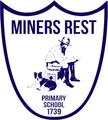Learning Specialists

Literacy
Some of our teachers recently engaged in some professional learning in the area of reading. Here is a fun fact that we stumbled upon while we were there...
FUN FACT!
Approximately 85% of the texts adults read are at an 'easy' level, with approximately 15% being 'instructional' level (needing some support to read and comprehend) and around 0% that we read as adults would be classified as 'hard'.
Your child/ren's take home readers should also be easy to allow them to develop confidence, feel success, focus on their fluency and expression, and most of all, so that they find reading enjoyable!
Numeracy
Helping children to become numerate does not need a high level of mathematics. It means:
- encouraging children to try, then keep trying
- encouraging children to think (reason)
- supporting children while they do homework (which means encouraging them and taking an interest, but not doing the thinking for them)
- modelling numeracy with children (including interpreting data, charts and diagrams)
- talking aloud when solving problems (every day or mathematical)
- getting children to check their answers (Does this answer make sense?)
- encouraging children to help with
- cooking (especially measuring out ingredients)
- paying bills
- scheduling events in the day
- reading maps and giving directions
- shopping
- measuring –– and thanking them for their support
- do not say “Maths is hard” or “I was never good at maths”. Numeracy capability is not inherited but attitudes are contagious.
http://numeracyguidedet.global2.vic.edu.au/numeracy-at-home-how-can-i-help-build-my-childs-numeracy/

